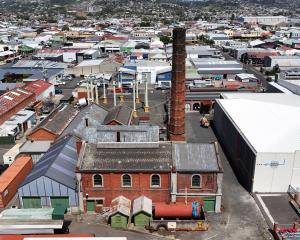Korrey Teeati Cook (36) was one of 10 men arrested earlier this year after an electronic surveillance operation into the drug-dealing activities of the Mongrel Mob Notorious gang in the wider Dunedin area.
During the investigation, intercepted conversations between Cook and others revealed $20,000 from the Government's Whanau Ora programme had been misappropriated from the We Against Violence Trust and used to buy cannabis intended for sale.
Cook eventually admitted indictable charges of dishonestly converting $20,000 of trust money, conspiring with others to sell cannabis and two charges of possessing cannabis for supply.
In the Dunedin District Court yesterday, Judge Michael Crosbie said Cook had begun the offending with his "eyes wide open". He narrowly escaped imprisonment for drug offending in 2009, a High Court judge giving him home detention in the hope it would assist his rehabilitation.
At the time of the offending this year, he was on bail for charges involving serious violence for which he was jailed for two years and nine months in August.
Cook was yesterday sentenced to four years' imprisonment - three years and three months on the cannabis charges, and an additional nine months for the criminal breach of trust.
The four-year term was added to the two years and nine months of his present sentence, taking the total prison time to six years and nine months.
The Crown summary said Cook and three others operated the We Against Violence Trust.
It received funding from the New Zealand Government via the Ministry of Maori Development (Te Puni Kokiri) and the district health board and was registered with the Charities Commission.
It opened a bank account on July 20 last year and received a $41,400 deposit from Te Puni Kokiri and $5000 from the health board in December. The last identified government deposit was $10,350 from Te Puni Kokiri on April 5 this year and, at April 13, the trust account had a balance of $17,099.41.
Police intercepted calls in which Cook told others the Dunedin chapter of the Notorious Mongrel Mob was seen as a model for other chapters of the gang on how to receive Whanau Ora funding from Te Puni Kokiri. They revealed Cook was being mentored through the funding process by senior national gang members elsewhere in New Zealand and he was mentoring another local gang on how to obtain government funding.
Cook outlined a plan to increase the trust's bank account and believed that, by claiming the initial $5000 as fees for building the plan, as opposed to it being paid directly to the families, they could spend the money any way they liked. He also discussed that the trust hoped to raise $115,000 this year from submitting plans and how the Whanau Ora funding had "worked well for us down here".
The We Against Violence Trust deed outlined as its objective to aid, assist and educate wha-nau and to promote non-offensive and non-violent lifestyles.
Between March 21 and April 10 this year, Cook and others were involved in transferring $20,000 in government funds from the trust account to personal bank accounts, the money then being spent on cannabis.
Crown counsel Craig Power said the first quantity of cannabis - seven pounds - was sourced from an Auckland supplier for an estimated $24,500 but was seized by police from the offenders' camper van during the Cook Strait ferry crossing. The gang believed it had been stolen so Cook organised the purchase of another six pounds for $21,000 from a West Coast source. That cannabis was seized by police who stopped the courier on his way back to Dunedin.
Mr Power said Cook's criminal history, his gang involvement, his fraudulent use of government money, his past history of offending, including eight previous convictions for drug offending, and the fact he was on bail at the time, warranted a prison term totalling up to five years although his existing prison term had to be taken into account.
Defence counsel Sarah Saunderson-Warner said there had been no use of a gang house or firearms as part of the offending as in other cases, and no proceeds were received from drug sales because both quantities of cannabis were "lost" before they reached Dunedin.
The We Against Violence Trust was set up before any Whanau Ora money had been available. It was a legitimate organisation with the stated aim of providing assistance to whanau. The funds received had resulted in applications to various organisations. It was not a case of applications being made for government money which was then immediately spent on cannabis.
There had been significant legitimate transactions and, of the $56,000 received, only $20,000 was used for criminal purposes, Ms Saunderson-Warner said.
She described Cook's personal circumstances as "a dichotomy".
He had done good things for the community as well as bad things, had been heavily involved in Maori sport, including rugby, and had been a role model, although at times he displayed behaviour he would not want taken as a model.
Judge Crosbie said he took a somewhat cynical view of the intention expressed by Cook to make changes. Similar statements had been made to the High Court judge in 2009, when Cook claimed he was leaving the gang.
He had seen his gang chapter as a model for other chapters to receive funding and, despite the aim of the trust to aid, assist and educate, had come to a point where he believed he could spend the money as he wished. That greatly exacerbated the criminality of the cannabis offending and justified an increase in the ultimate sentence.












